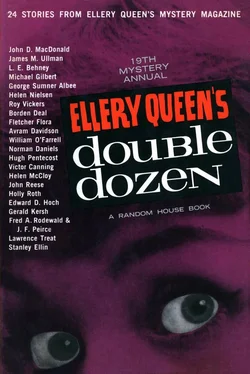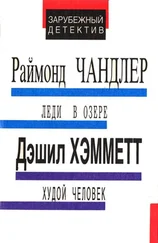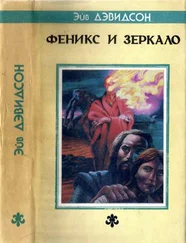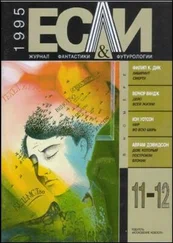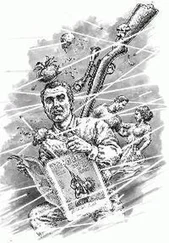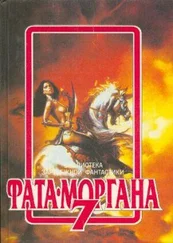He looked very natty this morning. And very old.
“The fact of the matter is, Charles,” he said, as if continuing a discussion only recently interrupted, “that this business is not growing.” He waved his hand: he had conceded a point, but it was not, the gesture said, a very important point. “But on the other hand,” he stroked his neat white mustache, “on the other hand, neither is it shrinking. Not any more. Not for the past few years. You’ve noticed that. Everybody who wants a washing machine has got one. Everybody who prefers a laundromat goes to one. We have leveled off, you see. We have a sound business here, a very sound business.
“The hospitals and nursing homes are not going to go out of business, and neither are they going to make the tremendous investment of putting in their own laundries, having to hire extra help, and so on. Not worth it. No, sir. Neither will our linen supply customers go out of business. As long as hair grows, people will need barbers, barbers will need towels, jackets, and so on. Hotels—”
He leaned forward as if something had just occurred to him. “And I tell you what!” he said. “I shouldn’t be surprised to see, oh, any number of motels opening up on the outskirts when this new highway they’re talking about goes through! And why shouldn’t we get some of those, eh? — some of their business. No reason why old Ben Steinberg should be allowed to get it all, eh, Charles?” And as he mentioned the name of the owner of his chief competitor, the old man quirked one side of his mouth. Charley recognized a Traditional Joke, and smiled.
“Well, I don’t mind saying, Mr. Damrosch” — Mr. Damrosch nodded his head rapidly and encouragingly, as if he very much wanted to hear what Charley didn’t mind saying — “that if any of these new motels should happen to be opened on my route, well, it would certainly be very welcome.”
Almost before Charley had finished the old man began to talk. “Oh, you can do better than that, Charles,” he said, almost reproachfully. “You can certainly do better than that. Sure... We can do better than that for you.”
“What do you mean, Mr. Damrosch?”
Mr. Damrosch opened his humidor, took out a cigar which certainly had never come from Havana, and offered it to Charley, who declined. The old man lit the cigar with deliberation, and puffed. Then he said, “You know this has always been a family-owned corporation, Charles. Stock has never been available to the general public. But —” His voice took the last word on a rising note, and he cocked his head and looked at the smoke. “The Cooper Estate is willing, for the first time, to make some of its shares of stock available.” The Cooper Estate, as everyone knew, consisted of Mr. Damrosch’s niece, her son, and her third husband. The old man himself, a widower, was childless.
“There have been certain expenses which have to be met rather quickly.” He gestured again. Details, details, the gesture said — unimportant details. “I have a certain say in the matter, and I say—” his eyelids, coming down, emphasized his words. “ I say, Charles, I do not want this stock to fall into the hands of outsiders, new faces with unfamiliar ways.” He paused. “I want you to be the one to take it. Don’t disappoint me, Charles.”
Charley swallowed. “ I don’t have any money, Mr. Damrosch. Just my salary.”
The old man’s eyes, hand, mouth, cigar, signified: An acceptable gambit. One which need not, however, detain us very long.
“For five thousand dollars, Charles,” said Mr. Damrosch, “you can secure a nice little block of stock in the firm for which you have worked all these years. Which has given you the possibility of maintaining your family. You realize, Charles, this would, in effect, make you my partner. How about that?”
“I don’t have five thousand dollars.”
The old man smiled. “Oh, I understand... You’d like a little cash, a nice roll of bills, to play around with, eh? Only natural. Get the wife, the kiddies, some presents. Go away to a decent place on your vacation. I understand. I’m with you. I can swing it. I’ll tell Lundquist — you know Hannon Lundquist, he was poor old Joe Cooper’s lawyer — I’ll just tell him that he will have to modify his demands. Forty-five hundred, I’ll say, is the most you can offer. Or,” he looked sharply up, as Charley still said nothing, “four thousand. He’ll have to sit still for it. That will give you a thousand to play with, and you’ll have four thousand dollars’ worth of stock in the plant to sock away till your kids are ready to go to college. Plus the div-i-dends, Charles. Plus the div-i-dends.”
Speaking rather more loudly than he intended, Charley said, “I just don’t have that kind of money, Mr. Damrosch!”
“Oh,” said the old man softly, “but you can get it. All you have to do is pick up the telephone. Eh?”
“Lew Livingston can do that if he wants to. Not me.”
The old man asked him if he’d prefer if he, Mr. Damrosch, did the telephoning? He could take care of everything. He could promise that nothing would even appear in the newspaper.
“No.”
Suddenly the old man became pathetic. He slumped. They were coming at him like lions, he said, like wild lions. Money — that was all they wanted. His own flesh and blood. They wanted to give the business away to strangers. He’d bought stock from them — and bought again, when they wanted more. But he couldn’t go on buying it, could he? He simply didn’t have that much capital any more. He looked up, pleading.
“No,” Charley said. He wondered if Mr. Damrosch had approached Lew and been turned down. Probably.
Mr. Damrosch shook his head. He seemed crushed. Then, very slowly, still shaking his head, he straightened up. “I’m older, a lot older than you, Charles,” he said, “I’ve seen more of this rotten world than you, and I’ll tell you what, Charles, I’ll tell you this: money never stinks .”
But still Charley shook his head.
Mr. Damrosch sighed. “Well, you’d better get back to your route,” he said. “If you see Freddy Choynsky outside, send him in. He’s been hanging around, asking for a route. There’s none open, but — well, I don’t know, maybe we can find one, somehow.”
Charley didn’t need to have this spelled out for him. Fear, anger, despair... “Freddy Choynsky?” he said. “Didn’t you say, when you fired him that last time, that you couldn’t stand to see his face around?”
The old man’s hooded eyes held him fast.
“Well...” the old man said deliberately, “maybe I could learn to...”
When he got home that evening Charley found Uncle Eddie Aurelius there.
“Look who’s here,” said Marie brightly, with a tight smile. “Uncle Eddie came in especially to see you.” Her eyes and mouth sent him an unmistakable message.
Uncle Eddie Aurelius was a keg-shaped little man, with no neck and no hair, snapping blue eyes, and a cauliflower ear.
“You going to stop this nonsense?” he demanded.
Charley felt very tired. “How about some coffee, Marie?” he asked.
“You listen to what Uncle Eddie has to say,” she said implacably.
What Uncle Eddie had to say was to recount, omitting no detail, the story of how he was asked to take the second mortgage in order to enable the Roscos to get their house; of what Charley had said, of what Marie had said, of what Aunt Loraine (Mrs. Uncle Eddie) had said, and, finally, what he, Eddie Aurelius had said. He then reminded them of each and every time a payment had been late and of what he had said on each occasion, having invariably been understanding and magnanimous.
Читать дальше
